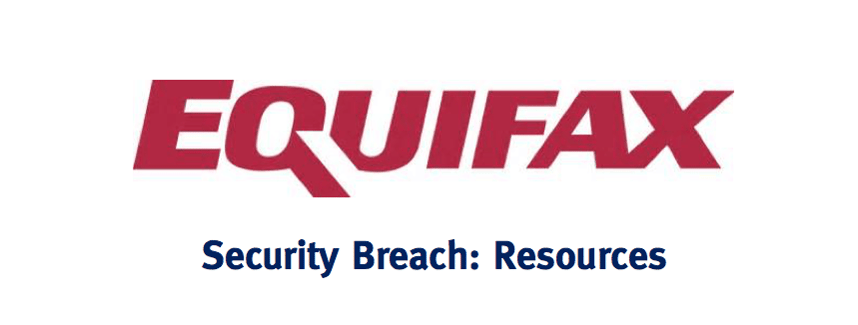The recent Equifax security breach has been on the forefront of many minds this week. The 143 million Americans—about half the U.S. population—affected may have had their social security numbers, birth dates, addresses, drivers’ license numbers, some credit card numbers and other personal information exposed.
Here's what you need to know about the situation, as well as steps you can take to protect yourself.
What happened?
Equifax Inc., one of the three major credit reporting agencies, reported that from mid-May through July 2017, unauthorized access to consumer files was gained.
What is the potential impact?
Criminals could use the information retrieved to open new accounts or gain access to existing accounts.
What should I do now?
Visit equifaxsecurity2017.com to assess your personal potential impact and, if you wish, enroll in a free credit monitoring service. Originally, Equifax said anyone who signs up for this program, TrustedID, waived his or her right to sue or benefit from a class-action settlement. After receiving public pressure, the company updated its position yesterday. Now, it is offering an opt-out provision—but customers must still notify Equifax within 30 days of starting the program to get out of the arbitration.
It should also be noted that Equifax is offering to monitor affected customers’ credit scores, but not to help fix credit scores that may have been negatively affected by the attack.
Are there other options for protecting myself?
Yes. If your assessment indicated vulnerability, start by changing your passwords to all online accounts—particularly those at financial institutions.
Then, we recommend putting a freeze on all of your credit files, which will prevent the unauthorized opening of accounts. Because executing a freeze with one credit bureau will NOT automatically update the others, you must contact each bureau separately. When you need to, you can easily unfreeze your credit report.
Additionally, you may wish to check with your insurance carrier to see if you have identity theft coverage through homeowner’s insurance, excess liability (“Umbrella”) insurance or a separate policy. Coverage varies but can include resolution services, reimbursement of related expenses, etc.
How do I initiate credit freezes?
There are online or over-the-phone options for each bureau. Contact information for each is below, and step-by-step instructions can be found here.
- Equifax | 1-800-685-1111 | www.freeze.equifax.com
- Experian | 1-888-397-3742 | www.experian.com/freeze/center.html
- TransUnion | 1-888-909-8872 | www.transunion.com/securityfreeze
- Innovis | 1-800-540-2505 | www.innovis.com/personal/securityFreeze
Should you want a more detailed description of what freezing and thawing your credit files entails, this article does a good job of providing a comprehensive analysis.
Security breaches are always disconcerting, but the safety of our clients' personal information is a top priority to us at Plancorp. If you are a client, please don't hesitate to reach out to your Client Service Representative. We'd be happy to walk you through any of these processes and answer any questions you have.
--
*Please note that, due to the dynamic nature of this situation, the content we've provided above is based on the best information currently available. We will continue to update information as it becomes available.









